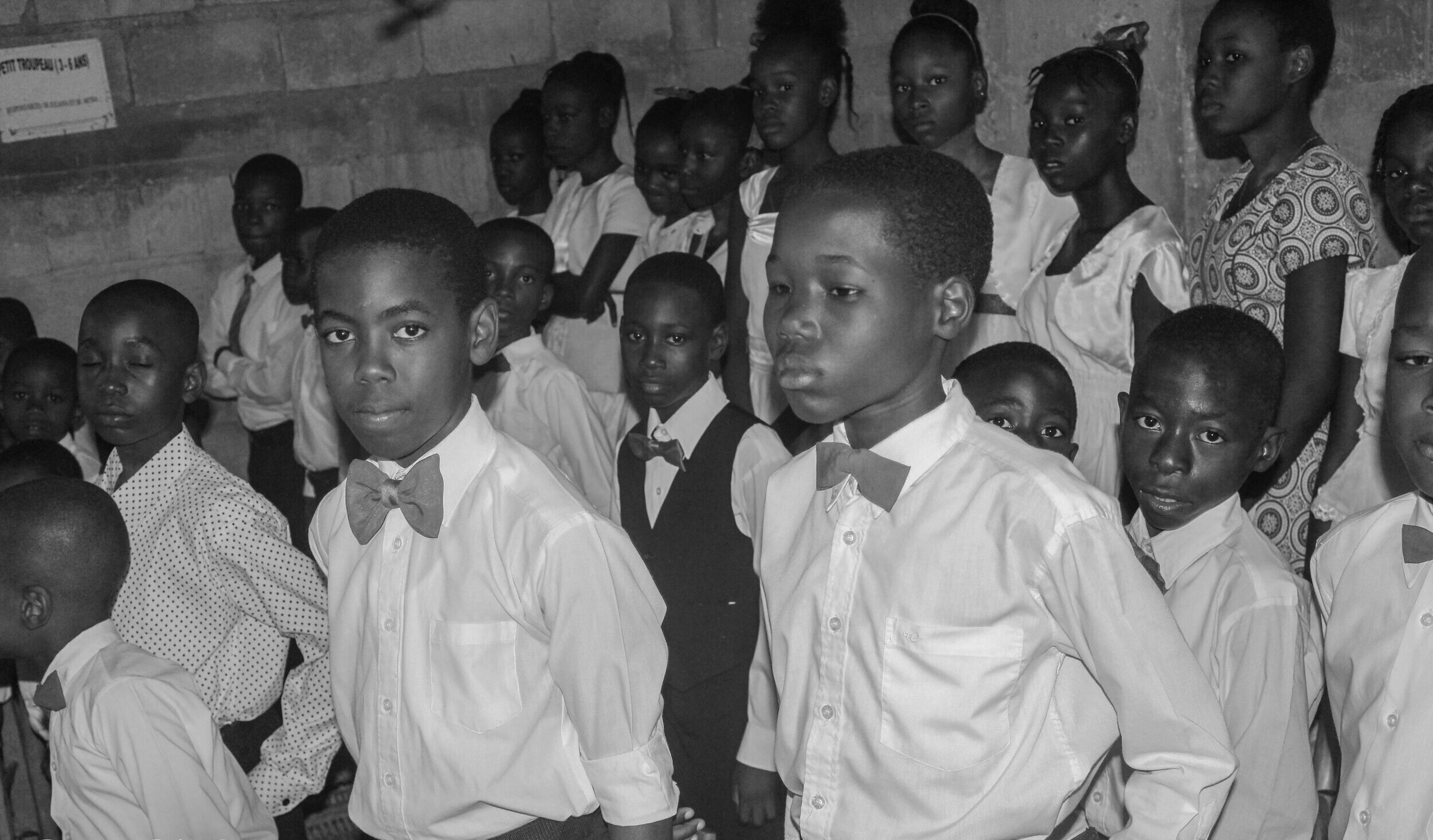
MISSION
Equipping the next generation to become agents of change in their communities.
VISION
Empowering local communities towards sustainability.
The next generation plays a vital role in bringing innovation and sustainability to Haiti and they are also the most vulnerable.
A United Nation research shows that 12-17 years old are at risk for getting initiated into gangs. They are also abused sexually, and are exposed to drugs and violence. According to the Haitian Institute of Statistics, the youths, which represents the majority of the population at 50%, are the most disadvantaged and affected groups. The majority of them, especially females, are engaged in unpaid domestic work. The males usually end up in gangs or dead.
In Haiti, they are also often neglected by NGOs or other organizations whose sponsorship programs typically only accept children starting from infancy up to 8 years old. They are left vulnerable at the stage where critical developmental factors such as education, socio-emotional and physical development are vital for their growth.
Furthermore, the traditional Haitian academic system requires a student to spend 13 years to finish primary and secondary school, and then have to spend an additional four or five years in university before entering the workforce. Majority of the students also don’t have the ability to go to university because their parents cannot afford the tuition and there are no scholarships available. But looking at the numbers, that’s roughly 16-18 years before a young adult can start earning money. There’s also no guarantee that they will be employed following their studies due to the unemployment crisis in the country. That is why it’s so common to find 30 year old still relying on the financial support of their parents. If the next generation is not given the proper tools to succeed in areas that will transform their communities, their future and that of their country will be ineffective in the efforts towards sustainability.
In Haiti, they are also often neglected by NGOs or other organizations whose sponsorship programs typically only accept children starting from infancy up to 8 years old. They are left vulnerable at the stage where critical developmental factors such as education, socio-emotional and physical development are vital for their growth.
Furthermore, the traditional Haitian academic system requires a student to spend 13 years to finish primary and secondary school, and then have to spend an additional four or five years in university before entering the workforce. Majority of the students also don’t have the ability to go to university because their parents cannot afford the tuition and there are no scholarships available. But looking at the numbers, that’s roughly 16-18 years before a young adult can start earning money. There’s also no guarantee that they will be employed following their studies due to the unemployment crisis in the country. That is why it’s so common to find 30 year old still relying on the financial support of their parents. If the next generation is not given the proper tools to succeed in areas that will transform their communities, their future and that of their country will be ineffective in the efforts towards sustainability.
The role of the next generation
By working with the next generation, we will teach them how to be self-sustainable and rely on their own resources. Our target group will be those between 12-18 years old. Our strategy is to provide them with early vocational training according to their potential and area of needs in their communities. In doing this, they will be able to support themselves as they continue their university studies. This will also enable them to start their own businesses to advance their communities and support their families. We will also teach them the importance of civics and their responsibility towards one another and the advancement of Haiti as a citizen. The ultimate goal is to equip them to become agents of change.
Haiti is currently the poorest country in the Western Hemisphere with more than 2.5 million habitants living above severe poverty (World Bank Report, 2019). But despite its current conditions, we believe that Haiti has more than enough resources at its disposal to reach a state of sustainability and reinvigorate its economy and current state. The lack of investment in the internal infrastructures to allow communities to become self-sustainable is destroying the country. It is time to re-evaluate the strategies. We know that we cannot change Haiti on our own, but we can plant seeds on good soils which will in turn give rise to a successful harvest for tomorrow.
Haiti is currently the poorest country in the Western Hemisphere with more than 2.5 million habitants living above severe poverty (World Bank Report, 2019). But despite its current conditions, we believe that Haiti has more than enough resources at its disposal to reach a state of sustainability and reinvigorate its economy and current state. The lack of investment in the internal infrastructures to allow communities to become self-sustainable is destroying the country. It is time to re-evaluate the strategies. We know that we cannot change Haiti on our own, but we can plant seeds on good soils which will in turn give rise to a successful harvest for tomorrow.

